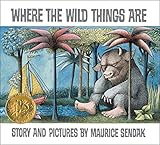承前*1
Emma Brockes “Maurice Sendak: 'I refuse to lie to children'” http://www.guardian.co.uk/books/2011/oct/02/maurice-sendak-interview
モーリス・センダック*2へのインタヴュー。
先ず83歳のセンダックがいまだに〈老憤青〉であることが示される;
代表作『かいじゅうたちのいるところ』の「怪獣(monsters)」の由来について。それはセンダックがポーランド系のユダヤ人であることと関係がある;
At 83, Sendak is still enraged by almost everything that crosses his landscape. In the first 10 minutes of our meeting, he gets through:Ebooks: "I hate them. It's like making believe there's another kind of sex. There isn't another kind of sex. There isn't another kind of book! A book is a book is a book."
New York: "You get pushed and harassed and people grope you. It's too tumultuous, it's too crazy!"
The American right: "These Republican schnooks would be comical if they weren't not funny."
Rupert Murdoch: "His name should be what everything is called now." But he publishes you! "Yes! Harpers. He owns Harpers and I guess the rest of the world, too. He represents how bad things have become. But I don't know a better house. They're all in trouble. They're all terrible."
(…) The monsters from Wild Things were based on his own relatives. They would visit his house in Brooklyn when he was growing up ("All crazy – crazy faces and wild eyes") and pinch his cheeks until they were red. Looking back, he sees how desperate they all were, these first-generation immigrants from Poland, with no English, no education and, although they didn't know it in 1930, a family back home facing extinction in the concentration camps. At the time, all he saw was grotesques.

Where the Wild Things Are (Caldecott Collection)
- 作者: Maurice Sendak
- 出版社/メーカー: HarperCollins
- 発売日: 1988/09/01
- メディア: ペーパーバック
- 購入: 2人 クリック: 39回
- この商品を含むブログ (20件) を見る
父親の死について語られ、(インタヴューが行われた)コネティカット州の自宅について、また精神分析家だったパートナーのEugeneについて、また共産主義者だったいとこについて。そして、両親との確執と和解;
(…) If he had come from a happy home, says Sendak, he would never have become an artist, at least not the kind of artist he is. Sendak's picture books acknowledge the terrors of childhood, how viscous and lonely it can be. In his latest book, Bumble-Ardy, the hero is a piglet who loses his neglectful parents to a slicing machine on the first page and is left in the care of an aunt. When Bumble turns nine, she throws him his first ever birthday party and, in the manner of most Sendak stories, things take a dark turn: older pigs gatecrash and, in a kind of porcine burlesque, wreck the place. The pictures are feverish and transporting – and, although the book ends in forgiveness and a hug between aunt and nephew, the sense of precariousness around Bumble remains. "I refuse to lie to children," says Sendak. "I refuse to cater to the bullshit of innocence."
また、自らの〈狂気〉について;
(…) He and Eugene never considered bringing up children themselves, he says. He's sure he would have messed it up. His brother felt the same way: after their childhood, they were too dysfunctional. "They led desperate lives," he says of his parents. "They should have been crazy. And we – making fun of them. I remember when my brother was dying, he looked at me and his eyes were all teary. And he said, 'Why were we so unkind to Mama?' And I said, 'Don't do that. We were kids, we didn't understand. We didn't know she was crazy.'"There was a partial reconciliation with his parents, a moment of understanding. They never made much of his work except once, when he was asked to illustrate a set of stories by Isaac Bashevis Singer, winner of the Nobel prize for literature in 1978. They were proud of that, he says. For the illustrations, Sendak went back to the family album. "There were the photographs my father had of his younger brothers, all handsome and interesting-looking, and the women with long hair and flowers. And I went through the album and picked some of my mother's relatives and some of my father's and drew them very acutely. And they cried. And I cried. So there was that. And there still is that."
サルマン・ラシュディ、ロアルド・ダール、スティーヴン・キング、グウィネス・パルトローがdisられて、ウィリアム・ブレイクのように死にたいということが語られる;
He's crazy, too, he says. "I'm totally crazy, I know that. I don't say that to be a smartass, but I know that that's the very essence of what makes my work good. And I know my work is good. Not everybody likes it, that's fine. I don't do it for everybody. Or anybody. I do it because I can't not do it." You can't be that crazy, I say: you managed to stay in one relationship for half a century. "Yes! And he was – well. He was a man who loved music and reading. He never smoked and he died of lung cancer, utterly ridiculous. I had that friendship for a long, long time."
ところで、スパイク・ジョーンズによる実写版の『かいじゅうたちのいるところ』は〈さび抜き〉というか、原作の持つダークさがどっかに行ってしまった気がする。
Sendak is in search of what he calls a "yummy death". William Blake set the standard, jumping up from his death bed at the last minute to start singing. "A happy death," says Sendak. "It can be done." He lifts his eyebrows to two peaks. "If you're William Blake and totally crazy."

かいじゅうたちのいるところ Blu-ray&DVDセット(初回限定生産)
- 出版社/メーカー: ワーナー・ホーム・ビデオ
- 発売日: 2010/05/19
- メディア: Blu-ray
- 購入: 6人 クリック: 71回
- この商品を含むブログ (58件) を見る